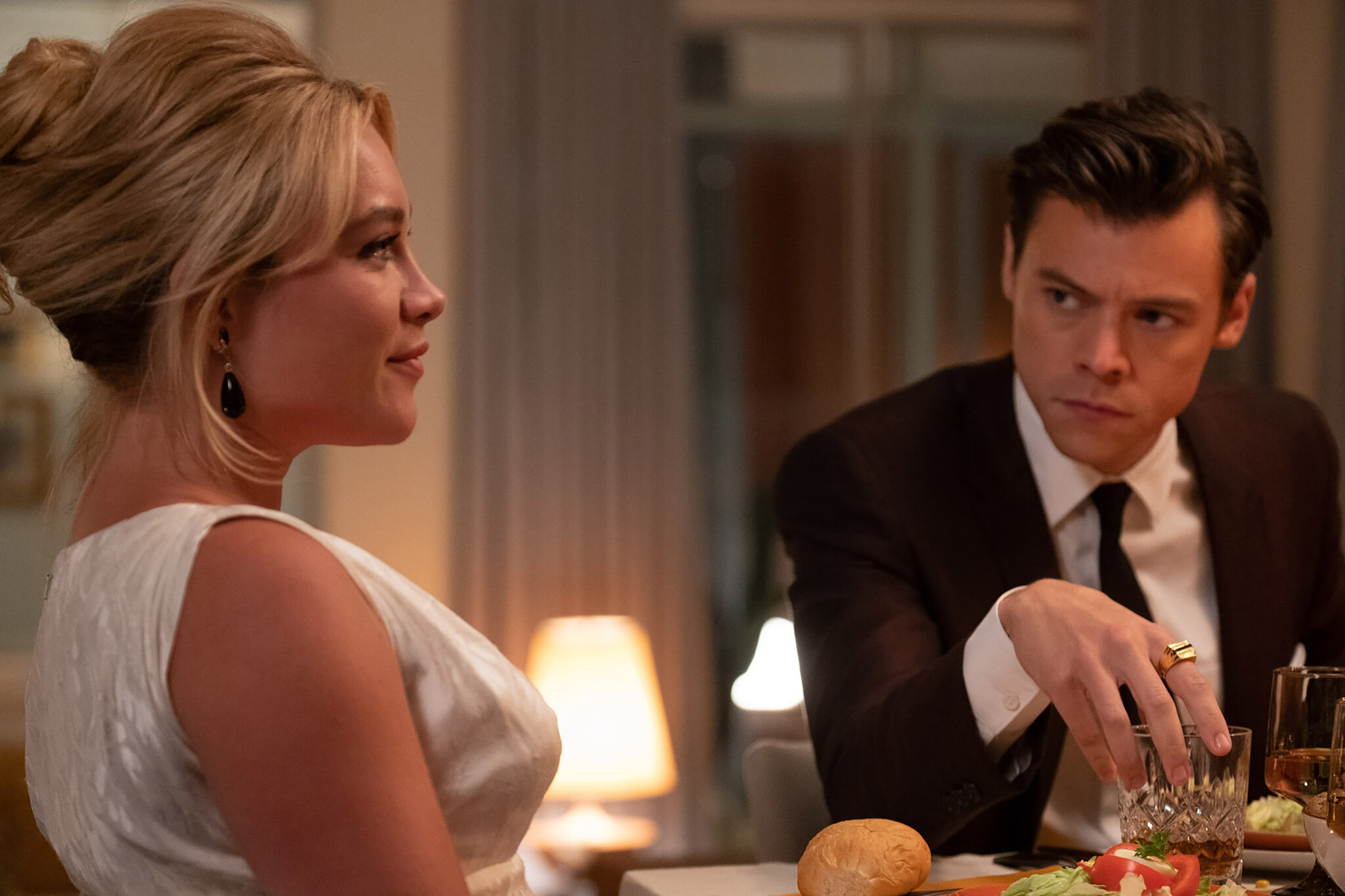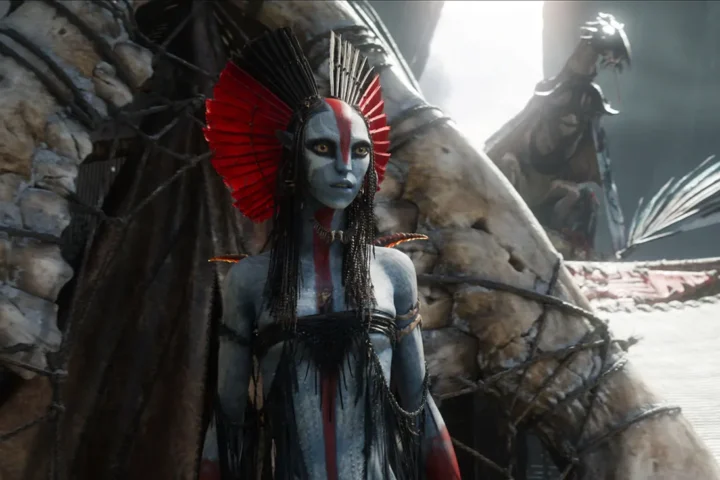As everyone in the free world is aware, the public scuffles around the production of and press for Olivia Wilde’s Don’t Worry Darling has reached a fever pitch and is poised to test the old chestnut about whether there’s any such thing as bad publicity.
In the run-up to release, the fevered fascination with purported feuds, lies and illicit romance fueling the set for director Wilde, star Florence Pugh, not-to-be star Shia LeBeouf, replacement (and lover) Harry Styles and even Chris Pine, the object of projectile saliva if you believe the gossip sites, has reached a roar not heard in forever. It remains to be see whether the ongoing fracas will impact the picture’s box office, but it certainly has made for (uselessly) juicy trade rag fodder and positioned a relatively minor film something as something of an event.
Don’t Worry Darling, the sophomore outing for Wilde after her assured comedic debut Booksmart in 2019, is decidedly more polished if less novel, a would-be dystopian satire cum social thriller set in a 50’s era prefab development of bureaucratic boss men, happy women homemakers, freshly painted picket fences and some very odd marital and social dynamics. In a sum of its parts picture, Wilde and cinematographer Matthew Libatique deliver a technical treat of a movie, however minor, that remains entertaining even if there’s nothing too new here and the story’s big reveals don’t require a degree in rocket science to decipher.
Mild spoilers.
Florence Pugh, in a full-bodied performance, deploys the force of a fine actor knowing she’s been tasked with creating a compelling character but also elevating middling material. When we first meet her Alice Chambers, she might be the vision of a perfect Atomic Age wife—blonde, bubbly, waiting for her husband Jack (Harry Styles) each day after work after preparing the perfect dinner (and ready to climb atop the table to fulfill his desire for cunnilingus in two ribald moments).
Alice and Jack reside in the hermetically sealed desert town of Victory, an idyllic community suggesting perhaps somewhere outside Palm Springs, and one where the menfolk all work for a top secret outfit run by Frank (Chris Pine), who is either a industry visionary or a cult leader of some sort, or perhaps both. All of the town’s men, including Frank and best friend Bill (Nick Kroll), drive off to work in perfect formation each morning, their impeccable wives waving from their driveways.
The women include Bill’s wife and glamorous neighbor Bunny (Wilde), pregnant Peg (Kate Berlant), new wife in town Violet (Sydney Chandler) and Alice’s troubled friend Margaret (Kiki Layne), suffering from anxiety and depression. Or is she? Margaret seems the only one dissatisfied with Victory’s perfection, prone to public outbursts and, we learn, a suicide attempt.
Trouble is brewing in paradise and after Margaret disappears following a fall from her roof, Alice’s own suspicions are raised. What are the recurring visions she’s been experiencing, which involve close-ups of eyeballs, chorus lines of Busby Berkley dancers and mysterious plane crashes? Why is no one allowed to leave Victory or even approach its corporate headquarters?
At this point, it seems plausible that Wilde and screenwriter Katie Silberman might be onto a sort of feminist suppression parable on the order of The Stepford Wives, perhaps a return to a cloistered era of radical gender inequity prior to equal rights. Yet the film isn’t quite that didactic or derivative. The less said about the film’s second half the better, but Pugh’s Alice, always the smartest person in the room, begins to unravel some of Victory’s mystery, to the bemusement of its architect. In these moments, Pine and Pugh make effective push-pull foils, and in a dinner table confrontation scene some truth telling occurs that is promptly dismissed, provocatively suggesting that living in a controlled utopia may, for many, be preferable to the world outside.
Pugh is terrific in the role, which allows her to be funny, romantic, terrified and ultimately a heroine of sorts, and she is the primary reason the film works when it does. Styles, appearing a bit green as an actor here, serviceably acquits himself. But next to Pugh, the picture’s real stars are art directors Mary Florence Brown and Erica Toth impeccably recreating midcentury modern Americana, costume designer Arianne Phillips for her glamorous, in vogue dresses with their sweetheart necklines and especially DP Libatique, whose lensing of various unrealities, from Victory’s geography to Alice’s nightmarish visions to a spectacular climactic chase in the film’s final act, provides one of the most cinematic studio films of the year.
Ultimately, the picture considers notions of dissatisfaction and malaise in modern living and a Twilight Zone-esque solution, and there’s some poignancy in the idea that if given the choice, many might prefer the safe zone of what amounts to a cult—albeit one of small-town values, shiny progress and a return to a simpler, predictable way of living—to the stressors of modern living.
Don’t Worry Darling isn’t perfect, deep or substantially dramatic, but it is a stylish piece of entertainment, well-made and performed.
3 stars.



